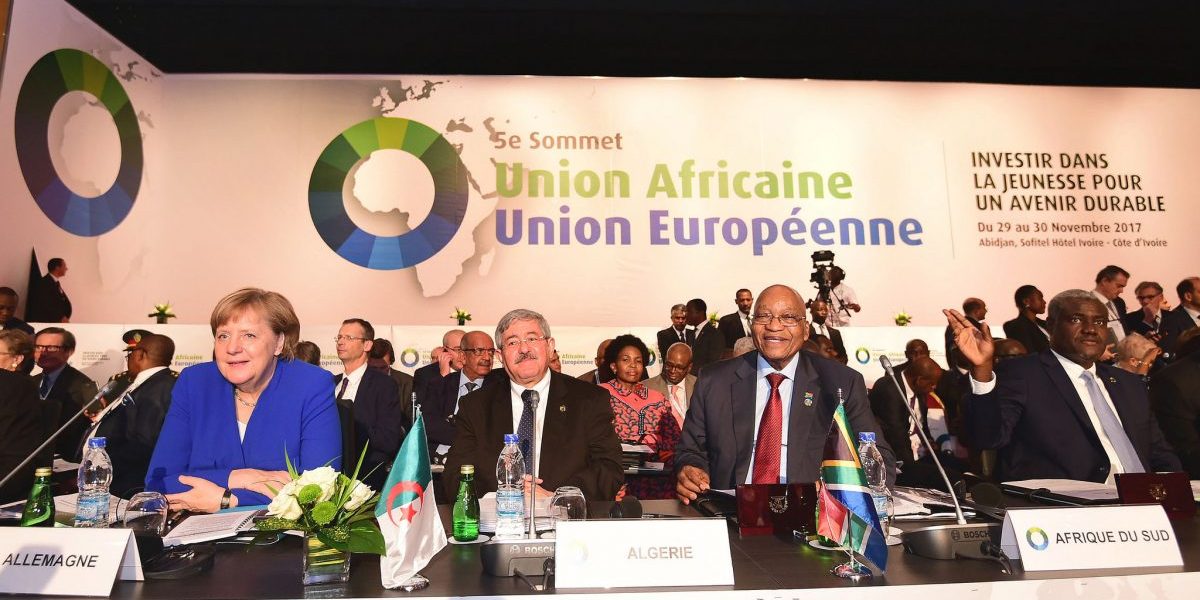athe former hoped to save some elements of its stalled constitutional process; the latter envisaged the edifice of continental government. The outcomes of both were compromises … as is the habit of summits.
Visionaries are necessary. Without Schuman and Monnet, the Treaty of Rome might not have been signed in 1957. The treaty established a European Economic Community (EEC), made up of six states, which came together voluntarily and for functional purposes.
Of course, the vision of a united Europe underpinned the treaty, made all the more convincing by the horrific world war that had ended only a decade previously, and which was followed by the Cold War.
For the member states, the creation of the economic community made both economic and political sense. They had well-developed political and economic institutions; a skilled and educated workforce; good transport infrastructure, which could form the basis of deepening economic ties; contiguity over a small geographic area; and their post-conflict reconstruction had been underwritten by the United States, and thus had a reinvigorated manufacturing base.
However, it was not until the Treaty of Maastricht in 1992 that the European Union came into existence. Since then, a number of national competencies have been ceded to the European Commission, including trade.
The most significant development was the adoption of a common currency in 2002, thus ceding monetary policy of the states that joined the euro-zone to the European Central Bank. Yet a common foreign and security policy exists mostly in name and there is no European army, although both matters have been discussed often enough.
Africa does not lack visionaries; without Ghana’s Kwame Nkrumah, the Organisation of African Unity would probably not have been formed. But what does Europe offer for questions about a continental government for Africa?
Africa’s problems are well-known, but bear repeating: they include intra-state conflicts, which sometimes spread across boundaries; poverty and underdevelopment; lack of economic opportunities outside state structures; very small productive sectors; limited skills capacity; poor transport infrastructure; petty and grand corruption; absence of accountability, linked to poor governance; and an unfair international trading system.
These problems cannot be proclaimed away, because a proclamation will not resolve the conflicts in Darfur, Chad, the Central African Republic and Ivory Coast, or the situation in Zimbabwe.
It will not deal effectively with the particular challenge of Africa’s asymmetric integration into the global economy or the poor infrastructure linking the continent – because its exports are mostly unbeneficiated natural resources.
To increase intra-African trade and economic interaction requires trading in goods and services, not only raw materials.
A union government will also not have stronger political and economic institutions, more able to manage complicated developmental projects, than individual African states.
In fact, the danger is that a supra-national government may simply exacerbate the deficiencies, making it more difficult for development and wealth creation to take root.
Although the EU’s path to economic and political integration has been riddled with difficulties, an important lesson for Africa’s integration is that it was built on common political and economic values. Greece, Portugal and Spain only joined the EEC once they had shaken off military rule.
Since 1993, states have had to comply with the Copenhagen criteria in order to be eligible for membership. These criteria are geographic (only European countries are eligible); political (democracy, rule of law, human rights, protection of minorities); economic (functioning market economy); and legislative (enacting laws that are in line with the body of European laws developed over the history of the union – the acquis communautaire).
All of this is not to say that a vision of a continental government should not exist, but rather to recognise that keeping an eye on the horizon should not detract from carefully crossing the flooded river now. In practical terms, this means that strengthening state and sub-regional capacities should continue to be the focus of endeavour for now.
Improving governance of institutions needs to be linked to coherent and comprehensive national and sub-regional development plans that are implemented effectively.
The leap of faith African states need to take, however, is to demonstrate the political will necessary to make existing regional economic communities work by adopting and implementing regional protocols, building up the regional infrastructure network and creating environments conducive to investment beyond the extractive sector.
Some of these actions do not always cost much, but can derive large benefits for regional development. In similar vein, the announcement at the AU’s Accra summit of the Pan-African Infrastructure Fund was an important milestone for the continent “doing it for itself”.
It is also at the regional level that cohesive communities sharing the same political and economic values take shape. In the absence of common agreed values, such as democracy, human rights and a market economy with a harmonised system of laws, one may not safely build a sustainable and durable continental super-edifice.
The debates about African unity over the past half-century have reflected the underlying hope of a much-suffering continent, that provided it united, all its woes would disappear. Unfortunately, there are no one-stop and overnight solutions to the continent’s problems.
Even in 1965, Tanzania’s Julius Nyerere warned that “the achievement of unity will not itself solve the problems of Africa … an All-African Government … will have to inch forward, organising and arguing every step of the way, and gradually grow in stature”.
Eliminating poverty and achieving peace and sustainable growth all require committed, responsible and accountable national leaders, working with their neighbours to optimise opportunities, minimise threats and build political communities based on common values. This is the first step in crossing the flooded river.








